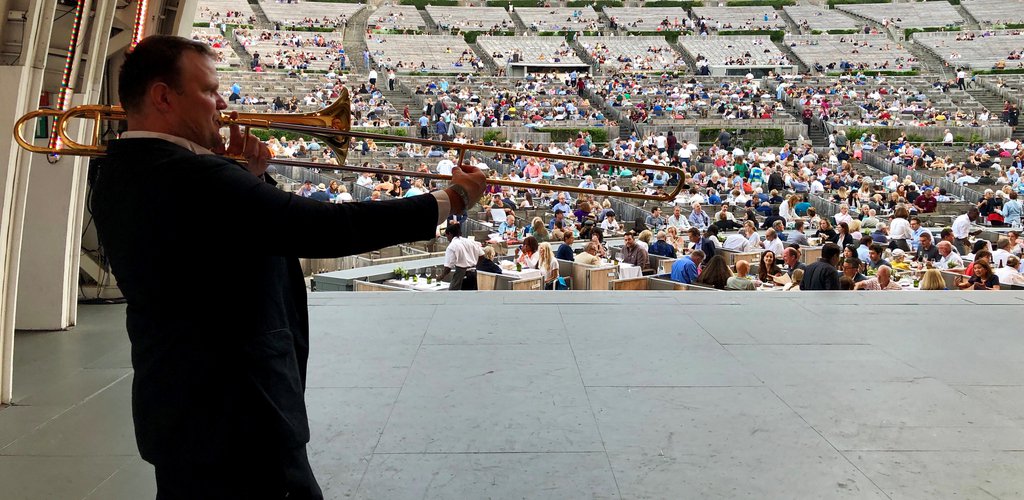"Depth was the order of an admirable evening of music making, in which everything was of the highest order" - writes Mark Swed in his review after the first concert of the Budapest Festival Orchestra in August in the Hollywood Bowl.
The Budapest Festival Orchestra, which began a three-concert stint Tuesday at the Hollywood Bowl, filling in for the touring Los Angeles Philharmonic, has had a regular place on the international best orchestra lists pretty much since Ivan Fischer helped found it in 1983. Still heading the orchestra, the Hungarian conductor, himself, has steadily grown over those 36 years, into one of the world’s most respected.
Together, maestro and his hand-picked musicians from Budapest’s best and brightest and least complacent, take everything they do with utmost seriousness, and their Bowl debut was no exception. Beethoven’s “Egmont” Overture was searing. Brahms’ First Symphony was majestic. Bruch’s syrupy Violin Concerto No. 1 was treated with rare nobility by the orchestra and its refined soloist, Nicola Benedetti. Depth was the order of an admirable evening of music making, in which everything was of the highest order.
But let’s peer around the corner, what came before and after the program, where the situation gets more interesting and less explicable. Our national anthem, a Bowl tradition for orchestral concerts, was played with gracious fervor and some curious added brass business that sounded like a celebratory flourish from Tchaikovsky’s “1812” Overture. But there was no Hungarian anthem to follow.
Then there was the encore. Fischer addressed the audience, reminding us that what the world needs is for everyone to sing. Parents should sing to their children, and children should sing in choruses. To set an endearing example, he then had the players put down their instruments, stand and sing, leading them in an a cappella folk song by Dvorák, a wonderful encore unlike any an orchestra has done before.
You can read the full article in the Los Angeles Times.

